Collection
Country
Type
85 results
Legacies on Display: Slavery in Museums
Museums are exciting places to see the usable past in action. They bring together objects, people and places to provide interpretation and facilitate discussions on a range of topics, from history to human rights. There is a global tradition of museums representing slavery beginning in the early twentieth century. These museums range from small, local community museums in the UK, that focus on individual abolitionist leaders, to redeveloped slave forts on the West African coast and large national institutions in North America. As well as providing visitors with information about slavery, both historic and modern, museums can also provide evidence as to how societies are thinking about these issues.
This collection showcases museums across the world that house permanent exhibitions relating to slavery and abolition.
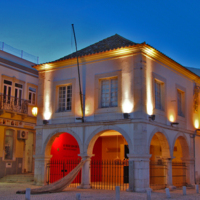
Mercado de Escravos
The Mercado de Escravos (or Slave Market Museum) is situated in the center of Lagos on the site of a fifteenth-century slave market, believed to have been the first in Europe. The museum building itself was built in the seventeenth century on the remains of the market, first as the Royal Overseer's…
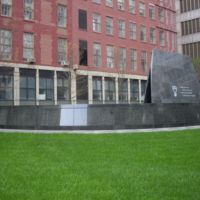
African Burial Ground National Monument
The memorial was founded after human remains were discovered underground by city workmen who were attempting to build some government offices in the 1990s. The remains belonged to enslaved Africans who were building New Amsterdam (present day New York). The African Burial Ground National Monument…
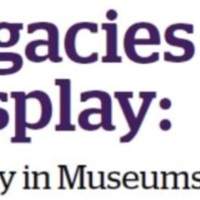
Alexandria Black History Museum
Previously called the Robert Robinson Library, the museum was opened as the Alexandria Black History Research Centre in 1983. In 1987, the Alexandria City Council placed the operation of the museum under the office of Historic Alexandria, providing a large increase in funding which allowed for the…
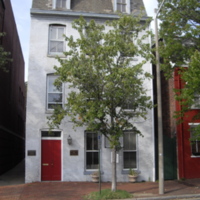
Freedom House Museum
The Freedom House Museum was once part of the headquarters for the largest domestic slave trading firm in the United States, Franklin and Armfield. Enslaved Africans were brought from the Chesapeake Bay area and forced to the slave markets in Natchez, Mississippi and New Orleans either by foot or…
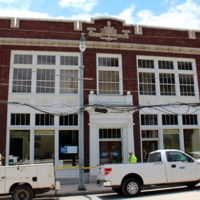
African-American Panoramic Experience Museum
The African-American Panoramic Experience (APEX) Museum aims to accurately interpret and present history from an African-American perspective in order to help all visitors understand and appreciate the contributions of African-Americans to America and the wider world. It was founded in 1978, and in…
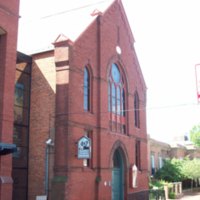
Banneker-Douglass Museum
Formerly the Mount Moriah African Methodist Episcopal Church, the site was constructed in 1875 and opened as the Banneker-Douglass Museum (BDM) in 1984. It was named after Benjamin Banneker – a free-born African American scientist and mathematician. He protested strongly against slavery, and…
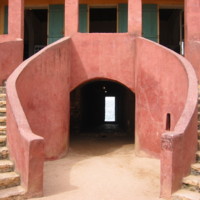
House of Slaves
The museum is located on Gorée Island, 3 km off the coast of Senegal. The structure was built in 1776 as a holding centre for Africans waiting to be exported across the Atlantic. It was converted into a museum and memorial in 1962. According to the original curator of the museum, Boubacar Joseph…
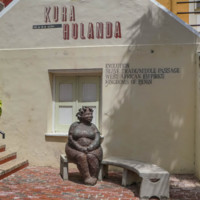
Kura Hulanda Museum
Situated on the grounds of a nineteenth-century merchant’s house and slave quarters, Kura Hulanda is an anthropological museum that focuses on the cultures of Curacao. Its displays examine a wide range of subjects from the origins of man, the African slave trade, and West African Empires, to…
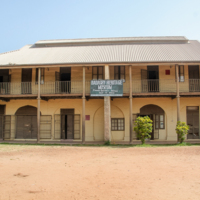
Badagry Heritage Museum
The Badagry Heritage Museum is housed in the former district officer’s office that was constructed in 1863. The museum attempts to highlight the injustice and horror of the transatlantic slave trade, whilst also exhibiting the rich histories and cultures of Africa. There is a specific focus on the…
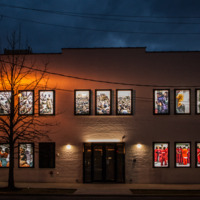
Legacy Museum
Open since April 2018, the Legacy Museum is built on the site of a former warehouse where enslaved Africans were imprisoned. The site is located between an historic slave market and the main river dock and train station where tens of thousands of enslaved people were transported through at the…
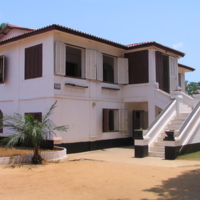
Le musée d'histoire de Ouidah
Le musée d'histoire de Ouidah (The Ouidah Museum of History) is located within the Old Portuguese Fort in Ouidah. The Fort was used to contain and transport enslaved Africans as part of the transatlantic slave trade, serving as the site for diplomatic presence of Portugal in the area. The fort…
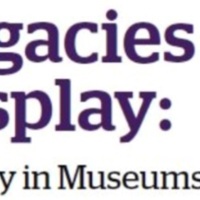
River Road African American Museum
The River Road African American Museum (RRAAM) was originally housed at Tezcuco Plantation, and opened in 1994. Due to a fire, it was relocated to its present site, a restored Caribbean-style cottage from the 1890s, in 2003. Before the museum opened, there was nowhere that charted the narrative of…
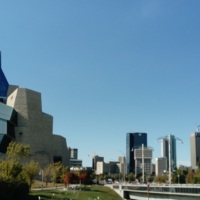
Canadian Museum for Human Rights
Situated in Winnipeg, at the heart of the Canadian Prairies, the Canadian Museum for Human Rights is the first museum in the world solely dedicated to the past, present and future of human rights. The museum aims to create inspiring interactive experiences for its visitors in order to equip them…
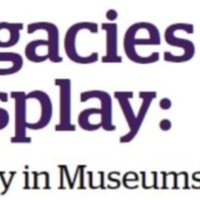
The National Great Blacks in Wax Museum
The National Great Blacks in Wax Museum opened in 1983. It was set up by Drs. Elmer and Joanne Martin as a cultural and educational institution that focusses solely on the study and preservation of African American history. It is a unique organisation as it represents the histories it interprets…
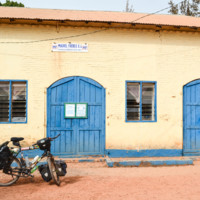
Museum of Slavery
The Museum of Slavery in the village of Albreda first opened in 1996. It is housed in the Maurel Fréres building which was built by the British colonial government in the 1840s. Only a short distance from Juffure, the home of Kunta Kinte - the main character of Alex Haley's 'Roots' - the museum is…
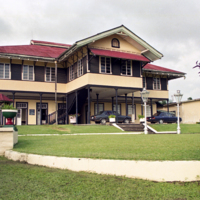
Old Residency Museum
The Old Residency Museum is housed in a colonial building, designed in Scotland and shipped to Nigeria during the 1880s. It previously housed the British colonial administration in Nigeria. The museum holds the largest collection of Nigerian documents and artefacts in the world. It focusses on the…
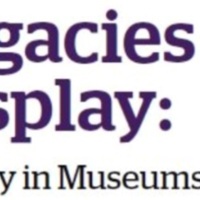
Pompey Museum of Slavery and Emancipation at Vendue House
The Pompey Museum is named after a courageous enslaved man who led a slave revolt from the Rolle Plantation on Steventon, Exuma, Bahamas. Vendue House, where the museum is located, was built in the 1790s and operated as a market place where enslaved people and other goods were sold during the…
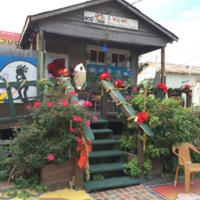
Odell S. Williams Now and Then African-American Museum
The Odell S. Williams Now and Then African-American Museum was established by Sadie Roberts-Joseph in 2001. The museum is named for Odell S. Williams, a well-loved educator in the Baton Rouge area. It was founded as Joseph identified a need in the local community for a cultural space that celebrated…
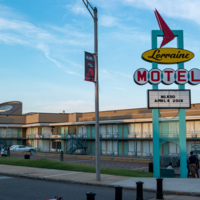
National Civil Rights Museum
The National Civil Rights Museum is housed in the Lorraine Motel, where civil rights leader Dr. Martin Luther King Jr. was assassinated on 4 April, 1968. It was founded in 1991 with the mission of sharing and raising awareness about the lessons and legacies from the Civil Rights Movement. The museum…
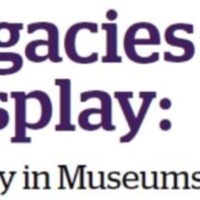
Museum of African American History
The Museum of African American History operates across two sites, one in Boston and one in Nantucket. It has preserved four historic buildings, and operates two heritage trails. All of this combined makes it the largest African American Museum in New England. The museum's mission is to preserve,…